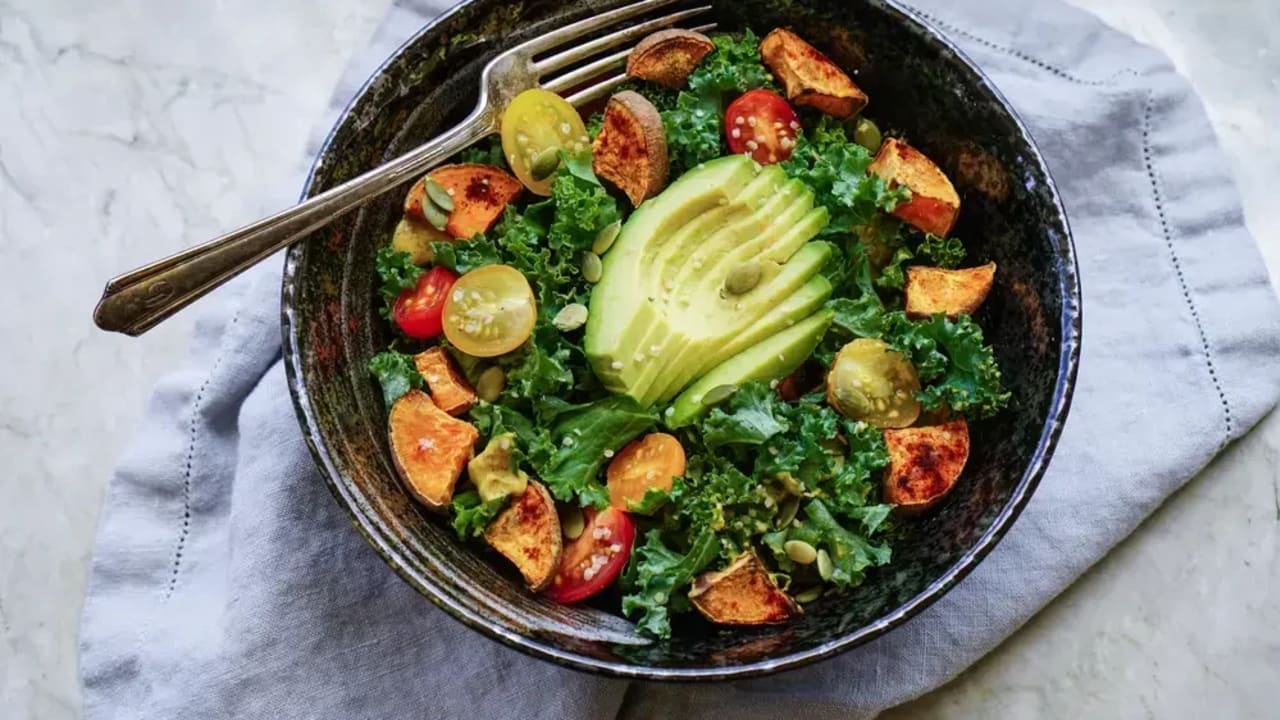Jerusalem Post
ByLUDA NEVO, CLINICAL DIETITIAN
A vegetarian diet has been found to reduce chronic diseases, including cancer. But does this mean that every such diet is healthy? And what exactly should one eat to enjoy its benefits?
Multiple chronic diseases are a condition in which a person suffers from two or more chronic illnesses – for example, diabetes, heart disease, or cancer – and it is a growing health problem worldwide, especially among people aged 60 and older.
In recent years, awareness has been growing regarding the health benefits of a vegetarian diet, which is mainly based on plant-based foods, with little or no animal-based foods. But the question arises – is every plant-based diet really healthy? Is a diet based on processed breakfast cereals, energy bars, and industrial spreads equivalent to a diet rich in vegetables, fruits, legumes, and nuts?
A large-scale study recently published in the journal The Lancet Healthy Longevity found that not only does reducing animal-based foods matter, but also – and perhaps mainly – the quality of the plant-based food consumed.
How did the study work?
The study followed more than 400,000 women and men aged 37–70 and examined the relationship between diet and the development of chronic diseases such as cancer, diabetes, and heart disease. It was found that among people who consumed a healthy plant-based diet, there was a 32% reduction in the risk of developing multiple chronic diseases, compared to those who did not adhere to such a diet.
Each increase of 10 points in the dietary quality score according to the study was associated with an 11–19% decrease in risk. The protection was stronger among those under 60, but it was also observed among older adults. In contrast, an unhealthy plant-based diet was found to be associated with an increased risk of multiple chronic diseases.
What is a healthy plant-based diet – and what isn’t?
• A healthy plant-based diet includes high consumption of vegetables, fruits, whole grains, legumes, and nuts. A small amount of animal-based products can also be included, without harming the benefits. Plant-based substitutes such as vegan burgers or vegan sausages can be included, but it is better for the diet to be based on natural, less processed foods.
• An unhealthy plant-based diet may contain little animal-based food and lots of plant-based food, but it is mainly based on processed products – such as sweetened beverages, candies, sugar- and fat-rich pastries, industrial breakfast cereals, and salty snacks. These foods provide empty calories with almost no real nutritional value.
How to make your diet more plant-based and healthier?
The researcher who led the study emphasized that it is not necessary to completely eliminate animal-based foods. Even a gradual shift toward a high-quality plant-based diet can improve health. However, it is very important to prefer natural and home-prepared foods over store-bought and processed foods.
Here are some practical tips:
1. Store-bought granola vs. homemade granola
Industrial granola usually contains a lot of added sugar and fat, and sometimes even harmful oils. In homemade granola, you can control the type of fat and the amount of sugar – it will be richer in dietary fiber and have fewer calories and teaspoons of sugar compared to store-bought granola.
2. Energy bar vs. date with nuts
A 20-gram energy bar contains on average 80–100 calories and about 2 teaspoons of sugar. A chocolate bar of the same weight will contain about 100–110 calories and about 3 teaspoons of sugar. In contrast, one date with a handful of nuts provides a similar calorie amount – but with healthy fats, minerals, and fiber, and without added sugar.
3. Prepared salads vs. homemade salad
Prepared salads are rich in salt, industrial fat, and preservatives. A fresh salad prepared at home provides full nutritional value without harmful additives.
4. Store-bought cheese substitutes vs. homemade spreads
Plant-based cheese substitutes usually contain about 200–250 calories per 100 grams, a high amount of fat, little protein, and industrial additives. In contrast, spreads based on legumes (such as hummus, lentil spread, or pea spread) provide more protein, less fat, dietary fiber, and additional natural nutrients.
5. Reducing processed food
It is recommended to reduce the consumption of sweetened beverages, salty snacks, and white bread – which provide calories and carbohydrates but almost no fiber, vitamins, and minerals.
A particularly significant study
The good news: It is not necessary to become vegan to enjoy the health benefits of a plant-based diet. It is enough to focus on food quality:
• Fill your plate with fruits, vegetables, legumes, and whole grains.
• Include a handful of nuts or seeds daily.
• Reduce sweetened drinks, processed snacks, and white bread.
• Maintain variety, including moderate amounts of animal-based foods.
In conclusion, not every plant-based diet is necessarily healthy. A diet rich in natural and high-quality plant-based foods significantly reduces the risk of chronic diseases such as heart disease, diabetes, and cancer, and even protects against the accumulation of more than one disease. In contrast, “plant-based junk” – such as cookies, snacks, and sweetened drinks – may actually lead to the opposite result.
The study is particularly significant, as it was conducted on a very large population – over 400,000 participants. One of its central messages is that it is not necessary to completely eliminate animal-based products from the diet, but the main importance lies in adding more plant-based foods, with an emphasis on their quality. A diet rich in fruits, vegetables, whole grains, legumes, and nuts has been found to protect against chronic diseases and multiple conditions such as heart disease, diabetes, and cancer – with emphasis on the younger population under the age of 60, but also among older people over 60. In contrast, the consumption of “plant-based junk” – usually processed food high in sugar, salt, fat, and industrial additives such as flavorings, stabilizers, and emulsifiers – actually increases risk. The recommendation is to choose plant-based foods that are as unprocessed as possible, homemade, and that provide richer and more natural nutrients. That is, it is not enough for the diet to be “plant-based,” but it must be high-quality plant-based – one that is based on nature, not on the factory.














